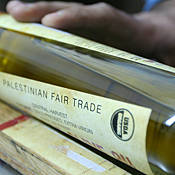Part II here
Prophet Muhammad's (peace be upon him) methodology of teaching his companionsThis post is also my way of commemorating the birth of Prophet Muhammad (peace be upon him) - the greatest role model, teacher, and leader to walk this earth.
To understand the importance of Hadith and its effect on the Prophet's companions one must have an idea of the Prophet's teaching methodology.
Of course, the the methodology of the Prophet (peace be upon him) in spreading knowledge was in line with that of the glorious Quran. Below are the highlights of this methodology as mentioned by Dr. Ajaj Al Khatib (
here for reference):
1. Gradual teaching:
The Quran was gradual in correcting the people's faith, manners, acts of worship, legal system, societal interactions... For all of the above, Prophet Muhammad explained and implemented the teachings of the Quran as they were revealed.
2. Places of knowledge:
As is well-known, the first Islamic 'school' was the house al-Arqam in which Muslims gathered during the Meccan era, away from the disbelievers of Quraysh to learn Quran and Hadith.
Moreover, the companions of the Prophet (peace be upon him) would constantly study the Quran and its explanation and interpretation (ie: the Hadith of the Prophet- peace be upon him) amongst each other wherever they got the chance. Thus, Hadith was memorized and studies along side the Quran from the earliest days of Islam.
At a later stage, the masjid became the house of spreading knowledge and Islamic rulings (
fatwa), in addition to a place for performing acts of worship.
Nevertheless, Prophet Muhammad (peace be upon him) did not confine the spreading knowledge to a particular place. He would be asked questions on the street or in a gathering and would not hesitate to answer. We know from the stories of the companions that the Prophet of Allah (peace be upon him) would often sit with them, teaching and purifying them.
5. Practical application:
The Prophet (peace be upon him) would teach his companions a few verses of the Quran at a time, explaining to them the meanings and the
fiqh rulings in the verses. The companions would learn the verses, understand their meaning, implement them in their daily lives, and only then would they move on to learn more verses.
Many of the greatest companions learnt the Quran this way, 10 verses at a time, including Abdullah ibn Masoud and Uthman bin Affan.
6. Speaking to people at their level:
The Prophet of Allah (peace be upon him) was always conscious of the background, education, and culture of his audience - always addressing them at their level, with words they would comprehend and to which they could relate.
7. Facilitating:
Prophet Muhammad (peace be upon him) stayed away from excessive strictness in worship and rulings and would choose the paths which would bring ease to the people, in any matter. The Prophet (peace be upon him) encouraged his companions to truly understand the matters of their
deen (way of life, i.e.: Islam). He would instruct them to ask questions on matters they were ignorant of, and forbid them from giving a
fatwa without sufficient knowledge.
8. Teaching women:
Prophet Muhammad (peace be upon him) paid attention to the teaching of women, just like he did to the teaching of men. He would dedicate a special time to sit with the Muslim women answering their questions and teaching them their
deen.
Through the above methodology, Prophet Muhammad (peace be upon him) was able to ingrain the beliefs and teachings of Islam in the hearts and minds of his companions.
Oh Allah, may Your Mercy, Peace and Blessings be upon our beloved Prophet Muhammad, and May You grant us his companionship in Jannah, ameen.












